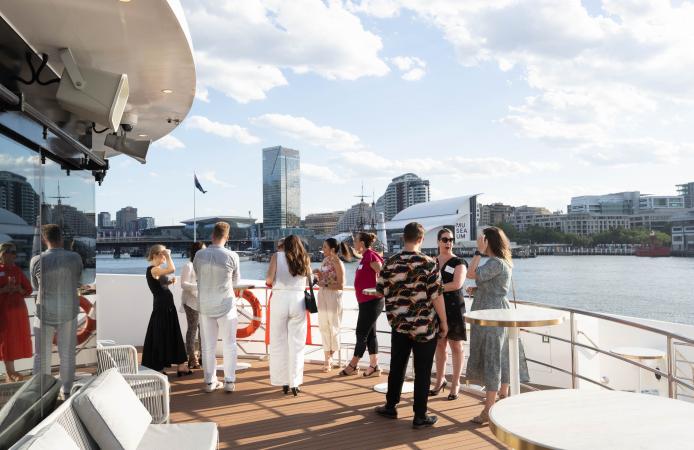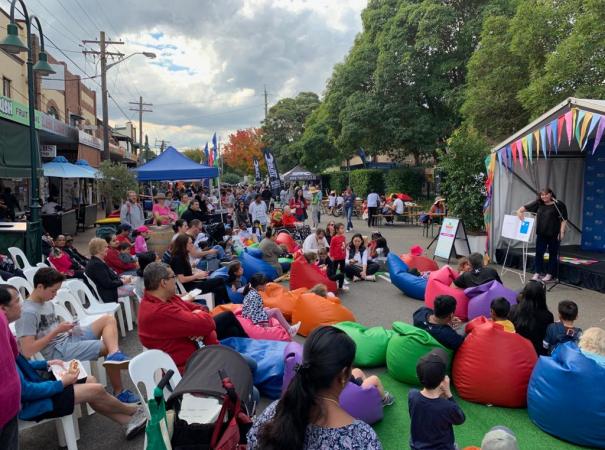
From The Chair: 29 June 2022
In this week's MEA Express, MEA Chairman Michael Firman ponders the rise of the work-life balance and seeks to answer the question all employers are asking, 'how can they promote a healthy lifestyle without sacrificing employee productivity?
A good ‘work-life balance’ is one of those sayings that has become a buzz-phrase in the last few years and has evolved to become a pre-requisite for job seekers. Balancing your professional and personal life can be challenging, but how do you attract new staff or retain existing staff in a fast-paced industry such as events?
No one can deny that a good work-life balance is an important aspect of a healthy work environment because it helps to prevent burnout in the workplace.
Burnout leads to fatigue, mood swings, irritability and a decrease in work performance for many who work in fast-paced environments. A fast-paced work environment is one where things happen very quickly and activity is continuous throughout the day. Busy, hectic, on the go; high energy, demanding but rewarding; sound familiar?
Of course, a fast-paced career such as events is where all the action is. The events industry is intense, fast paced and dynamic, with lots of interactions with people. It’s a work environment that revolves around tight deadlines, ambitious production schedules, quick turnarounds and multi-tasking.
Often it’s an environment where work takes precedence over everything else in our lives. Our desire to climb the ladder and succeed professionally can push us to set aside our own well-being. Increased responsibilities at work are often associated with working longer hours and higher performance expectations, and also higher stress.
I look around the industry today and see many people and small businesses trying to down-scale and pull back from the hectic pace that dominated their work-lives in a pre-pandemic world. More quality and less quantity seems to be the motto of many around me.
As our industry endeavors to rebuild, we see the evolution of work-life balance in another buzz-phrase born of the pandemic years, the desire for ‘flexible work arrangements’.
But what does all this mean? When you hear “work-life balance,” you probably imagine having an extremely productive day at work, and leaving early to spend the other half of the day with friends and family. While this may seem ideal, is this realistic? Is the reason for the mass-migration out of our industry and the difficulty in attracting new blood due to a poor perception of balance in our industry?
How can a company promote a healthy lifestyle, both physically and emotionally, without sacrificing employee productivity? How do we still maintain the expectations of clients and deadlines while offering ‘flexible work arrangements’ and a work-life balance?
Perhaps the answer is different depending on your generation. When I was younger, the goal for me was to find a job that I was so passionate about that I would do it for free. For my parents it was all about career stability and supporting a family. Perhaps for millennials they are more interested in finding a career path that will support their “lifestyle”, which in this context means their life outside of work.
Whatever your generation, it seems this is where flexibility and workplace happiness comes into play. If you have a job that is draining you and making it difficult to do the things you love outside of work, or you are working in a toxic environment, for a toxic person, or doing a job that you truly don’t love, then why would you stay?
Equally, if you are a business owner with difficult clients or you feel like you’re working for free, how can you expect your staff to be motivated to bust their chops for your customers?
If you hate what you do, you aren’t going to be happy, plain and simple. You don’t need to love every aspect of your job, but it needs to be exciting enough that you don’t dread getting out of bed every morning. When employees are happy in their roles, work feels more like a second home and less like working for a paycheck or career.
Work-life balance can be as simple as finding a career path that will support the lifestyle you’ve envisioned for yourself. Who wouldn’t work hard for that?
Being flexible in the workplace will mean different things to different people because, after all, we all have different life commitments. Balance is a very personal thing, and only you can decide the lifestyle that suits you best.
In this sense, employers should focus on their employees to increase their loyalty and engagement rather than solely on outcomes for their clients. Know what your employees are striving for because not everyone has the same work-life balance goals. And above all, set a good example as a leader because your employees will follow your lead.
Ultimately, if you improve the overall workplace experience for employees and offer a healthy work culture through cultivating a happy workplace environment, this will drive engagement, productivity, and retention of staff.


